#But I figure other people might be interested
Text
Regressors that are (bodily) older, please interact!
Later 20s, 30s, maybe even older? I would love to hear from you and maybe even your stories if you don't mind sharing!
I want to meet more people like me and also show others that age regression doesn't just suddenly "stop" at a certain age
Some of us:
Didn't discover regressing/didn't understand their involuntary regression until they were older
Wasn't in a safe space mentally and/or physically to be able to regress the way we want to
Didnt "grow out" of regressing. I think a lot of people outside the community assume we will all grow out of wanting to regress at some point. Maybe some of us will, but some of us won't. Regressing can be a safe and healthy coping mechanism, no matter your bodily age!
And probably many other reasons I can't think of at the moment lol
I would love to get to talk to older regressors, or if there are any groups/discords, I would like to know those too :3
I'm gonna talk about my story a little under the cut, but I don't exactly recommend reading it if you are little right now! I am going to be talking about s3xualization of agere and children's media unfortunately.

I started age dreamer/involuntarily regressing when I was in high school without really knowing what it was. I was really into MLP FiM during its height popularity. I watched the show, collected and played with the toys, did coloring books, took my MLP blanket to school ever day. You get the idea.
I discovered regression here in Tumblr, but this was yeeeeaaars ago, like back when nsfw was still allowed. The line between ddlg and agere wasn't as solid as it is now. Or maybe it was just because I was a kid and couldn't understand better? Either way ... i ended up getting wrong ideas of what agere had to be and ended up scaring myself off. I also had adult roleplayers leaving really inappropriate comments on my posts that made me feel icky. I thought agere had to be s3xual and scared myself off.
We also unfortunately probably know the uhhh .. types of fan art that was popular of MLP. And it just ended up making me lose interest in the series. The stuff was everywhere and it was hard to avoid even if you were vigilant.
I never got a real chance to understand what healthy, voluntary regression was. I still was an age dreamer, but most times when I involuntarily regress it is out of extreme stress and it isn't fun or pretty.
I had a lot of bad things that happened to me last year and in turn I am having more health issues. Chronic conditions I already had getting worse, and new ones popping up. My mom (the one who birthed me) has been helping me a bit, but it has still been a lot of playing adult. Making phone calls back and forth, filling out paperwork, figuring out disability leave, paying bills, etc etc. I started age dreaming more and more often to cope with the stress. Like I randomly one day bought a DVD player and sets of Winnie the Pooh and Scooby Doo DVDs lmfao.
I also never stopped collecting stuffed animals and came back to collecting dolls again last year. It helps that I have friends IRL who I don't think are regressors, but still enjoy collecting with me. (my friends don't know yet, but I think they would be accepting if I told them, or they might already assume I regress tbh)
I have kinda had age regression on the back of my mind for several months, but was scared to look back into it. I was scared of going through the same thing I did back in high school. But also denying I am a regressor and that I still need to heal my childhood wounds was getting heavier and heavier on me. I am sooooo thankful I finally felt safe to begin exploring regression again ♥️😁
Side note: while I absolutely don't care if people do ddlg and similar stuff as a kink/fetish, I am thankful that the distinction between that and agere is more distinct now. It is important we protect minors and other vulnerable people from having the same sorts of things that happened to me (or worse) from happening to them.
#age regression#age regressor#agere#sfw agere#sfw little community#sfw littlespace#sfw regression#agere blog#agere community#age dreamer#age dreaming#autistic agere
100 notes
·
View notes
Text
Ikemen Prince 4th Anniversary Eve
Gilbert & Azel: The Relationship Unbeknownst to Anyone
Somewhere on a certain day—

Gilbert: "---I've always wondered if the conqueror beast and the sacred beast were one in the same."
Gilbert: "Both being evils of the world that control people and manipulate them as they please."
Azel: "I agree with the evil part. You and I would be better off not existing."
Azel: "We are both nuisances to the world, after all."
Gilbert: "Should we die together then?"
Azel: "You mean kill each other."
Gilbert: "That’s right."
Azel: "Disgusting."
Gilbert: "Agreed."
Azel: "So?"
Gilbert: "Hehe, no need to rush. I've went through the trouble of preparing food and drinks, so why not enjoy it first?"
Azel: "I'm having alcohol, while you're having water?"
Gilbert: "Oh, so you noticed."
Azel: "I am a god, after all."
Gilbert: "More like a con-artist, right?"
Azel: "That's another way to put it."
Gilbert: "Haha, you're not denying it."
Azel: "The title isn't that important."
Gilbert: "Really? I thought you’d be particular about it."
Azel: "Not at all. At least with you, being god or con-artist doesn't matter."
Azel: "I'm just a 'nuisance’ in the end, aren't I?"
Gilbert: "So you realized that."
Azel: "Just how many times do you think I've confiscated the weapons you smuggled into my country?"
Azel: "Can't you stop that? It's increasing my overtime and it's annoying."
Gilbert: "It only takes time because you carefully disassemble the firearms and send them back each time."
Gilbert: "Is that your hobby or something?"

Azel: "Do you want to be called a carefree rich boy?"
Gilbert: "Oh, so it was actually a declaration of war."
Azel: "If you understand that much, then don't bother asking. Tanzanite is the land of the gods,”
Azel: "So you should’ve realized by now that your spies and schemes are powerless in my sacred domain."
Gilbert: "Hmm, that's troublesome."
Gilbert: "It seems I miscalculated how difficult 'cleaning up' Tanzanite would be."
Gilbert: "Or perhaps I should say I underestimated you."
Gilbert: "Tanzanite has the lowest return rate for spies among the major countries."
Gilbert: "Currently you’re the only one from your country that's noticed my plans—No, more like, you're the only one at all."
Gilbert: "I thought that I could gather some information from you by sharing a drink, but..."
Gilbert: "You're quite hard to read. Is this what a god is like?"
Azel: "Donations are always welcome."
Gilbert: "Unfortunately for you, I only believe in myself."
Azel: "I figured as much. Spending time on you could be considered a waste."
Azel: "...Though a free meal does have its value."
Gilbert: "Haha, if you get along with me, there might be even better things in store for you."
Azel: "Not happening."
Gilbert: "Oh, that was an immediate answer. Despite us being somewhat similar."
Azel: "That's just slander."
Azel: "I don't distrust human potential as much as you do."
Azel: "Humanity doesn't need gods or beasts."
Gilbert: "...Is that so?"
Azel: "Want to bet?"
Gilbert: "Sure, sounds interesting."
Gilbert: "Your schemes are like mirages, vague and hard to grasp, but..."
Gilbert: "I'll bet on the foolishness of humans."
Azel: "Then I'll bet the opposite."
Azel: "I'll bet on the potential of humans."
Azel: "They have the ability to cleanse themselves. They can recognize and atone for their mistakes."
Azel: "Make sure to prepare your money, Disaster boy."
Gilbert: "You too."
Some little notes I had:
*: There's a possibility of Azel being older than Gilbert, seeing as he would attach things like (ーくん)-kun or (ーちゃん)-chan to the nicknames he gave Gilbert…That or Azel's was just trying to antagonize him.
**: Alternative interpretation of the nickname carefree rich boy could be 'airheaded/thoughtless young master'
***: Alternative interpretation of the nickname (厄災くん or yakusai-kun)Disaster boy could be 'Mr. Calamity'
I wasn't sure which of these interpretations would fit Azel's dialogue more, so I wanted to leave these notes so that everyone can get a general sense of the word/nickname.
Master List
▼・ᴥ・▼
#ikemen prince#ikepri#ikepri translations#ikepri jp#ikepri spoilers#ikemen prince spoilers#ikepri gilbert#gilbert von obsidian#ikepri azel#azel radwan
92 notes
·
View notes
Text
Roughly 10 Cool Historical Queer Figures More People Should Know About
Part 1 - From Ancient Era to Early Modern Era
In spirit of Pride Month here's some snippets of queer history I think are interesting.
I've been working on a series of deep dives into interesting historical queer figures, but I haven't had the time to continue my list after the first entry about Julie d'Aubigny. I do want to continue with it, but I came to the realization that I will never have to time to do all the cool and interesting figures in depth, since there's too many, so I decided to do a list with brief descriptions about some of my favorite figures who are not that well known. Some of them are more well-known than others but I think they all deserve more acknowledgement.
I was able to trim down the number of figures to (roughly) 20, which was still too many for one post, so it's two posts now. They are in chronological order, so this part is set mostly before Victorian Era and the second part will be from Victorian Era onward.
This list is centered around western history (but not exclusively) because that's the history I'm most familiar with, though it's definitely not all white, since western history is not all white. I will be avoiding using modern labels, since they are rarely exactly applicable to history, rather I will present whatever we know about these figures' gender, sexuality and relationships. If there's information about what language they used about themselves, I will use that. Often we don't know their own thoughts, so I will need to do some educated guess work, but I will lean towards ambiguity whenever evidence is particularly unclear. If you are the type of person who gets angry with the mare suggestion there's a possibility that a historical gnc person might not have been cis, I encourage you to read my answers to related asks (here and here) first before sending me another identical ask. Try to at least bring some new arguments if you decide to waste my time with your trans erasure.
1. Khnumhotep and Niankhkhnum (latter half of 2400 BCE)
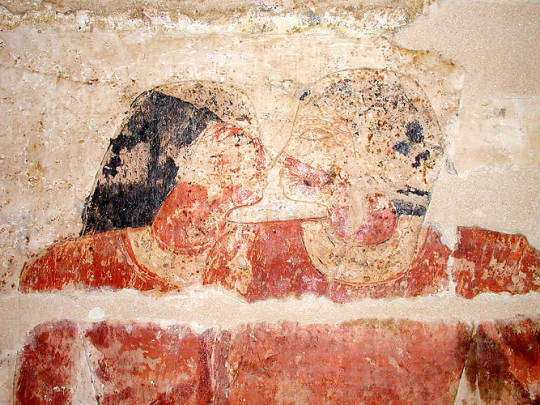
Khnumhotep and Niankhkhnum were ancient Egyptian royal servants, and possibly the first recorded gay couple in history known by name. They shared the title of Overseer of the Manicurists in the Palace of King Nyuserre Ini. They both had a wife and children, but they (along with their families) were buried together in a tomb. The tomb decorations show them similarly as other afterlife couples.
2. Marinos the Monk (c. 5th-8th century)
Marinos the Monk was born as Marina somewhere in eastern parts of Byzantine Empire, likely in the Levant. He was from a wealthy Christian family, possibly Coptic. Assigned female at birth his widowed father planned to marry him off and go to a monastery himself, but he convinced his father to take him with him dressed as a boy named Marinos. His father agreed and they were accepted as monks. After his father died many years later, he continued his life as a male presenting monk. Later he was accused of fathering an illegitimate child with a daughter of an innkeeper, which was not possible, but he didn't revoke the accusations, instead he begged for the abbot's forgiveness for "his sins". Marinos was banished from the monastery and became a beggar. For 10 years he raised his alleged illegitimate child as a father, until he was allowed to return to the monastery and do penance. Only after his death the abbot and the monks discovered his genitals and his inability to father children and were distraught for punishing an innocent man for 10 long years. The real father was discovered and along with the innkeeper and his daughter they all came to honor Marinos' grave and ask his forgiveness. He was canonized as a saint for his sacrificial selflessness, modesty and humility and honored across the Mediterranean from Ethiopia to France.
3. Mubārak and Muẓaffar al-Saqlabi (c. 10th - 11th century)
Mubārak and Muẓaffar were co-rulers of Taifa of Valencia in Muslim Spain. Al-Saqlabi means literally "of the Slavs", which in Al-Andalus was a general term for enslaved northern Europeans, as the two had been enslaved as children. They were in the service of another al-Saqlabi, a chief of police, and they worked they way up as civil servants till a local military coup in 1010, which resulted in them becoming the emirs of Taifa of Valencia. English language sources often describe them as "brothers" and "eunuchs", which gives the "historical gal pals" trope a concerning twist, but contemporary Muslim sources wrote fawningly about their passionate love, trust based on equality and mutual devotion. There was a popular genre of homoerotic poetry in the Islamic world at the time and poems in that genre were written about celebrating Mubārak and Muẓaffar's relationship. In 1018 Mubārak was killed in a riding accident and Muẓaffar shortly after in an uprising.
4. Eleno de Céspedes (1545 – died after 1589)
CW: genital inspection
Eleno was born in Andalusia, Spain, to an enslaved black Muslim woman and to a free Castillian peasant. He was assigned female at birth, given name Elena, and branded as a mulatto born to a slave. She was freed as a child and married to a stonemason at 15-16 years old. When pregnant, her husband left her and died a while later. Later Eleno testified that his intersex condition became externally visible, while he gave birth, and he became a man. He left his son to be raised by a friend and traveled around Spain. After he stabbed a pimp and ended up in jail, he started presenting as a man and openly courting women. Eventually he taught himself to be a surgeon with the help of a surgeon friend.
When he married María del Caño, his maleness was questioned and he was subjected to genital inspection multiple times and it was agreed by doctors that he had definitely male genitals, possibly also female genitals. After a year of marriage the couple was accused of sodomy. Eleno was tried by the Spanish Inquisition and subjected to more genital inspections, during which no penis was found. He claimed that his penis had been amputated after an injury. He defended himself in the trial by arguing that his intersex condition was natural and he had become a man after his pregnancy, so his marriage was legal. He was sentenced only for bigamy, since he had not confirmed that his husband was dead and punished as a male bigamist with 200 lashes and 10 years of public service to care for the poor in a public hospital. His fame attracted a lot of people wanting to be healed by him, which which was very embarrasing for the hospital so he was sent away and eventually exonerated from his charges.
7. Chevaliére d'Éon (1728-1810)

Charles d'Éon de Beaumont was born to a poor French noble family. In their 20s they became a government official and at 28 they joined the secret spy network of the king, Secret du Roi. They became a diplomat first in Russia and later in Britain while they used their position to spy for the king. Rumors circulated in London that they were secretly a woman. While in London they had a falling out with the French ambassador, accused him of attempted murder and published secret diplomatic correspondence. They were instead accused of libel and went into hiding. After the death of Louis XV in 1774 and the abolishment of Secret du Roi, d'Éon negotiated with the French government of the end of their exile in exchange for the rest of the secret documents he possessed. D'Éon took the name Charlotte, claimed she was in fact a cis woman - she had pretended to be man since a child so she could get the inheritance - and demanded the government to recognize her as such. When the king agreed and included funds for women's wardrobe, she agreed and returned to France in 1777. After that she helped rebels in the American War of Indepence - was not allowed to ]go and fight too, ghostwrote her not super reliable memoir, offered to lead a division of female soldiers against the Hasburgs in 1792 - was for some reason denied, attended fencing tournaments till 65 years old and settled down for the rest of her years with a widow, Mrs. Cole. After her death a surgeon reported that she had male primary sex characteristics, but fairly feminine secondary sex characteristics, like round breasts, which might suggest she had hormonal difference/was intersex in some way.
8. Public Universal Friend (1752-1819)
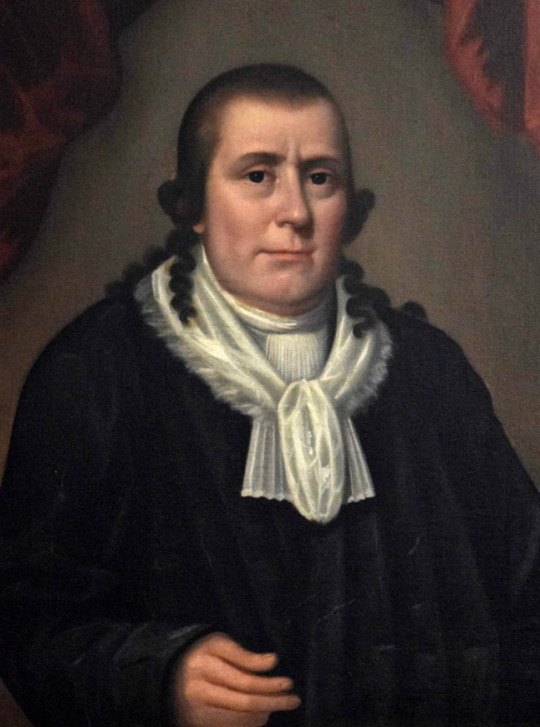
Public Universal Friend, or The Friend or PUF, was born as Jemima Wilkinson to Quaker parents in Rhodes Island, USA. Jemima contracted a disease in 1776, gained intense fever and almost died. The Friend claimed that she did die and God sent the Friend to occupy her body. The Friend didn't identify as man or a woman, and when asked about the Friend's gender, the Friend said "I am that I am". The Friend didn't want any gendered pronouns or gendered language to be used about the Friend. The Friend's pronouns, according to the writings of the Friend's followers, were "the Friend", "PUF" and possibly he. First recorded neo-pronouns perhaps? The Friend also dressed in androgynous/masculine manner.
The Friend started a bit cultish religious society disavowed by mainstream Quakers, The Society of Universal Friends, which I can only describe as chaotic good. The Friend first predicted a Day of Judgement would come in 1780 and when 1780 came and went, the Friend decided it was New England's Dark Day in 1780 and they had survived survived the Judgement Day so all was good then. The Friend preached for gender equality, free will, universal salvation (Jesus saved everyone and no one will go to hell) and abolition of slavery. The Friend persuaded any followers to free their slaves, which is probably the most chaotic good thing a potential cult leader can do with their influence over their followers, and several freed black people followed the Friend too. The Friend advocated for celibacy and was unfavorable towards marriage, but didn't think celibacy or rejection of marriage were necessary for everyone else, so it feels more like a personal preference. Many young unmarried women followed the Friend and some of them formed Faithful Sisterhood and took leadership positions among the Society.
The Society of Universal Friends tried to form a town for themselves around mid-1780s, till in 1799 the Friend was accused of blasphemy. The Friend successfully escaped the law two times. First the Friend, a skilled rider (what's a gender neutral version of horse girl?), escaped with a horse, then after an officer and an assistant tried to arrest the Friend at home, women of the house drove the men away. Third time 30 men surrounded the Friend's home at night, but a doctor convinced them that the Friend was in too poor health to move but would agree to appear at court. The Friend was cleared for all charges and even allowed to preach at the court.
9. Mary Jones (early 1800s–1853)
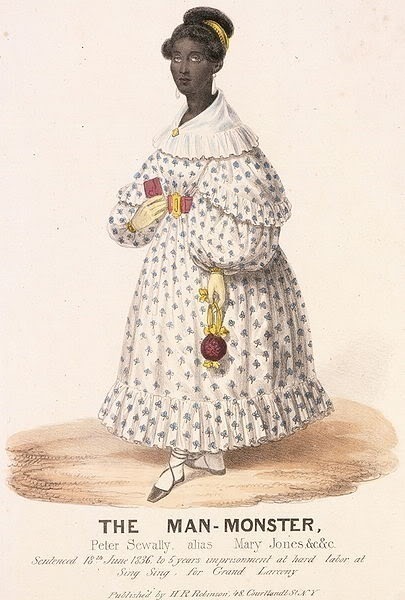
Mary Jones' origin is unknown, but she was an adult in 1836 in New York, USA. She was a free Black person, who preferred to present as a woman. She was sex worker by trade and used a prosthetic vagina. As a side hustle she would steel her customer's wallets, and usually they wouldn't tell anyone because it was 1830s and inter-racial sex and prostitution were illegal and everyone was repressed. Smart. Get your coin, girl. However after one of her more shameless customers discovered his wallet with 99 dollars inside had been replaced with a different man's empty wallet and contacted the police, she was arrested. The police discovered she had male genitals and when they searched her room they found several more stolen wallets. She appeared in court in her female presentation and when asked about her dress, she said that prostitutes she had worked with encouraged her to dress in women's clothing and said she looked better in them. They were right and she had since presented as a woman in her evening profession and among other Black people. She was convicted for grand larceny and sentenced to 5 years in prison. Later she continued to present as a woman and practice sex work, for which she was arrested for two more times.
10. George Sand (1804-1876)
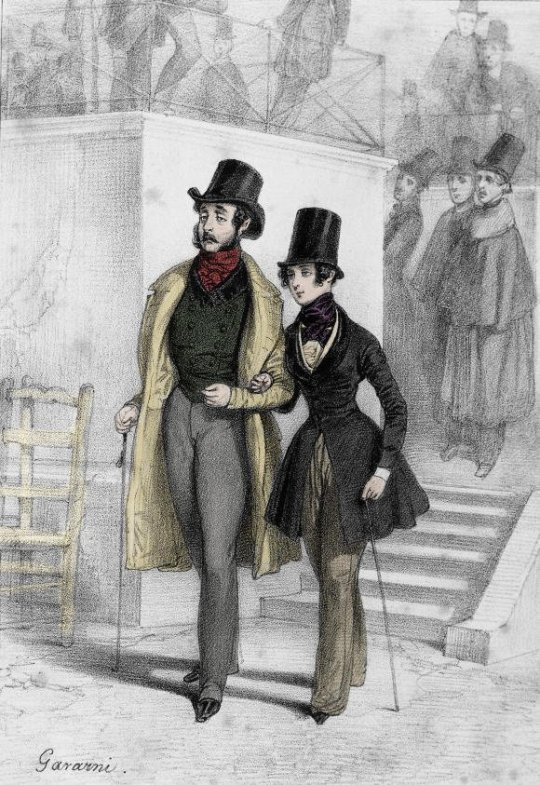
George Sand was pen name of Amantine Lucile Aurore Dupin de Francueil, a French Romantic writer. Amantine was high-born with a countess as a grandmother. George wrote about themself with alternating masculine and feminine language, using feminine language when talking about his childhood, but masculine language often other times. Their friends also used both masculine and feminine terms about them. Victor Hugo for example said about them: "George Sand cannot determine whether she is male or female. I entertain a high regard for all my colleagues, but it is not my place to decide whether she is my sister or my brother." George preferred men's clothing in public, which was illegal for those seen as women without a permit, but they didn't ask for permissions. They alternated between masculine and feminine presentations. They were outspoken feminist, critic of the institution of marriage, committed republican and supporter of worker's rights. They were married at age 18, had two children and left their husband in 1831, but legally separated from him in 1835. They had many affairs with men and some with women, at least with actress Marie Dorval. Their most notable relationship was with Frédéric Chopin, but they fell out before Chopin's death.
#i will be absolutely writing in depth posts about some of these figures#the friend is 100% one of those i fucking love the friend that story is a gift that keeps giving#history#queer history#pride month#queer#lgbtq history#queer tag#trans history#gay history#sapphic history#lesbian history#intersex history
61 notes
·
View notes
Text

A MASTERLIST OF ALL THE BOOKS I COULD FIND IN TIM'S BOOKSHELVES
As someone who basically sees Tim Laughlin as my own version of Jesus Christ (I kind of wish I was lying but I have a 'beyond measure' tattoo branding my skin so perhaps I'm entirely serious), I simply needed to know what was on those shelves of his. And this was a hard task to achieve, believe me... but I got much farther than I initially thought I would.
(I've got so much to say about all of these books and how they might string together to create a deeper understanding of Tim as a character but I won't go into it here... maybe in a future post or video essay, who knows).
If you wish to help a girl out and attempt to figure out any of the other books I simply can not crack no matter how I look at the screenshots and mess with the adjustments... here's a folder full of 2k sized screenshots of those shelves.
Before I list the books one by one, I want to make a couple observations:
1) Almost all of the books I was able to pinpoint are non-fiction. The ones that aren't are children's books.
2) Topically, we see an interdisciplinary interest in:
History: from a book on a king in 4BC, to a survey of landholding in England in the 11th century.
Somewhat current historical events: books on World War I and II.
Western Philosophers: specially from the 16th to the 18th century.
Aesthetics: there's at least 2 books on the subject matter, but I couldn't find the second one, sadly.
Spirituality: not only christian/catholic; some of these books touch on Eastern practices such as Buddhism and Hinduism.
Fairy tales / children's books.
Psychology: specially in regards to mysticism and sexuality.
Science and scientific discovery/research.
3) A lot of the history, current events, and spirituality books are autobiographies/memoirs.
4) A lot of books (specially those on sciences and philosophy) tend to be more so anthologies or overviews on a subject matter rather than a book written by one specific author on one very concrete topic.
Overall, this all reflects very well an idea Jonathan Bailey himself expressed in a brilliant interview you can watch here if you haven't yet:
"Tim has buddhist flags in his 1980s flat in San Francisco, he has crystals, he is someone who is always seeking other ways to understand human experience. Which is probably tiring for him. Throughout the decades, he sort of appears as completely different people. At the crux of it there's this extreme grinding, contrasting, aggressive duality between feeling lovable and not feeling lovable. There's such shame in Tim. But it's the push and the pull which keeps him alive.”
This desire to understand human psychology, spirituality, and the ways of the universe through as many diverse lenses as possible, as well as a predilection for non-fiction, expresses very much to me that insatiable thirst for truth that defines his character so strongly.
OKAY, THAT BEING SAID. Here's the list in chronological order of publication.
PS. if you decided to click on any of the following titles it'd definitely not take you to a google drive link of the pdf file where you could download and read these books for yourself. Because that would be illegal and wrong.

Journeys through Bookland by Charles H. Sylvester (1901?) (1922 Edition)
I don't know which specific volume he owns, sorry, I tried my best but the number is not discernible (hell, the title barely is). If anyone wants the download link to these hmu because I'm not about to individually download all 10 right now.
10 volumes of poems, myths, Bible stories, fairy tales, and excerpts from children's novels, as well as a guide to the series. It has been lauded as ‘a new and original plan for reading, applied to the world’s best literature for children.’

Pilgrimage by Graham Seton Hutchison (1936)
This book provides a view of the battlefields of WW I through the eyes of the average fighting man.
One curious thing about this book is that it's author, a British First World War army officer and military theorist, went on to become a fascist activist later in his life. Straight from Wikipedia:
"Seton Hutchison became a celebrated figure in military circles for his tactical innovations during the First World War but would later become associated with a series of fringe fascist movements which failed to capture much support even by the standards of the far right in Britain in the interbellum period." He made a contribution to First World War fiction with his espionage novel, The W Plan."

The Seven Storey Mountain by Thomas Merton (1948)
The Seven Storey Mountain tells of the growing restlessness of a brilliant and passionate young man, who at the age of twenty-six, takes vows in one of the most demanding Catholic orders—the Trappist monks. At the Abbey of Gethsemani, "the four walls of my new freedom," Thomas Merton struggles to withdraw from the world, but only after he has fully immersed himself in it. At the abbey, he wrote this extraordinary testament, a unique spiritual autobiography that has been recognized as one of the most influential religious works of our time. Translated into more than twenty languages, it has touched millions of lives.
This book requires no introduction. It's the one he keeps the Fire Island's postcard in and the one we see him re-reading in episode 8 after Hawk brings it to the hospital with him at the end of episode 7.
Just a little detail I noticed:
Apparently he liked the book so much he visited Gethsemani, which was the home of its author all the way up till 1968.

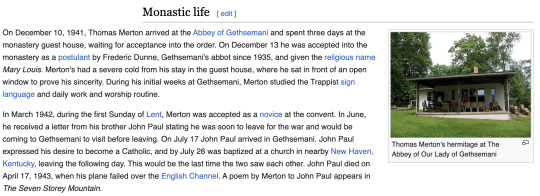
For all we know, he might have even met its author!

Sexual Behavior in the Human Male by Alfred Charles Kinsey, Wardell B. Pomeroy (1948)
When published in 1948 this volume encountered a storm of condemnation and acclaim. It is, however, a milestone on the path toward a scientific approach to the understanding of human sexual behavior. Dr. Alfred C. Kinsey and his fellow researchers sought to accumulate an objective body of facts regarding sex. They employed first hand interviews to gather this data. This volume is based upon histories of approximately 5,300 males which were collected during a fifteen year period. This text describes the methodology, sampling, coding, interviewing, statistical analyses, and then examines factors and sources of sexual outlet.
Yes, Charles Kinsey is indeed behind the Kinsey scale that has done so much for the LGBTQ+ community.

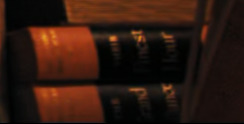
Their Finest Hour (1949), The Grand Alliance (1950), and Closing the Ring (1951) by Winston Churchill
Winston Churchill's six-volume history of the cataclysm that swept the world remains the definitive history of the Second World War. Lucid, dramatic, remarkable both for its breadth and sweep and for its sense of personal involvement, it is universally acknowledged as a magnificent reconstruction and is an enduring, compelling work that led to his being awarded the Nobel Prize for literature in 1953.
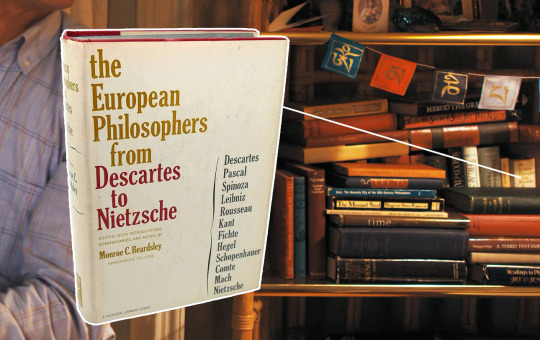
The European Philosophers from Descartes to Nietzsche by Monroe C. Beardsley (1960)
In so far as we reflect upon ourselves and our world, and what we are doing in it, says the editor of this anthology, we are all philosophers. And therefore we are very much concerned with what the twelve men represented in this book--the major philosophers on the Continent of Europe--have to say to us, to help us build our own philosophy, to think things out in our own way. For the issues that we face today are partly determined by the work of thinkers of earlier generations, and no other time is more important to the development of Western thought than is the 250-year period covered by this anthology.
Monroe. C. Beardsley, Professor of Philosophy at Swarthmore College, has chosen major works, or large selections from them, by each man, with supplementary passages to amplify or clarify important points. These include: Descartes - Discourse on Method (Descartes), Thoughts (Pascal), The Nature of Evil (Spinoza), The Relation Between Soul and Body (Leibniz), The Social Construct (Rousseau), Critique of Pure Reason (Kant), The Vocation of Man (Fichte), Introducciton to the Philosophy of History (Hegel), The World as Will and Idea (Schopenhauer), A General View of Positivism (Comte), The Analysis of Sensations and the Relation of the Physical to the Psychical (Mach), Beyond Good and Evil (Nietzsche).
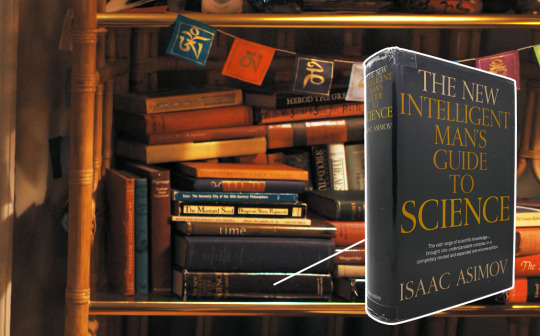
The New Intelligent Man's Guide to Science by Isaac Asimov (1965)
Asimov tells the stories behind the science: the men and women who made the important discoveries and how they did it. Ranging from Galilei, Achimedes, Newton and Einstein, he takes the most complex concepts and explains it in such a way that a first-time reader on the subject feels confident on his/her understanding.
Assists today's readers in keeping abreast of all recent discoveries and advances in physics, the biological sciences, astronomy, computer technology, artificial intelligence, robotics, and other sciences.
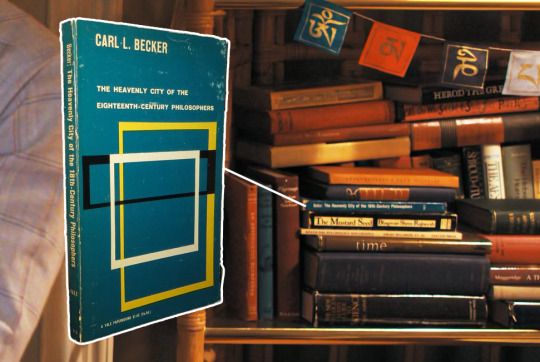
The Heavenly City of the 18th Philosophers by Carl L. Becker (1932) (1962 reprint)
Here a distinguished American historian challenges the belief that the eighteenth century was essentially modern in its temper. In crystalline prose Carl Becker demonstrates that the period commonly described as the Age of Reason was, in fact, very far from that; that Voltaire, Hume, Diderot, and Locke were living in a medieval world, and that these philosophers “demolished the Heavenly City of St. Augustine only to rebuild it with more up-to-date materials.” In a new foreword, Johnson Kent Wright looks at the book’s continuing relevance within the context of current discussion about the Enlightenment.
I find the particular choice of adding this book very curious and on brand, since it explores the idea that philosophers of the Enlightenment very much resembled religious dogma/faith in their structure and purpose. Just... A+ of the props department to not just add any kind of book on philosophy anthology.

Herod The Great by Michael Grant (1971)
The Herod of popular tradition is the tyrannical King of Judaea who ordered the Massacre of the Innocents and died a terrible death in 4 BC as the judgment of God. But this biography paints a much more complex picture of this contemporary of Mark Antony, Cleopatra, and the Emperor Augustus. Herod devoted his life to the task of keeping the Jews prosperous and racially intact. To judge by the two disastrous Jewish rebellions that occurred within a hundred and fifty years of his death -- those the Jews called the First and Second Roman Wars -- he was not, in the long run, completely successful. For forty years Herod walked the most precarious of political tightropes. For he had to be enough of a Jew to retain control of his Jewish subjects, and enough of a pro-Roman to preserve the confidence of Rome, within whose territory his kingdom fell. For more than a quarter of a century he was one of the chief bulwarks of Augustus' empire in the east. He made Judaea a large and prosperous country. He founded cities and built public works on a scale never seen before: of these, recently excavated Masada is a spectacular example. And he did all this in spite of a continuous undercurrent of protest and underground resistance. The numerous illustrations presents portraits and coins, buildings and articles of everyday use, landscapes and fortresses, and subsequent generations' interpretations of the more famous events, actual and mythical, of Herod's career.
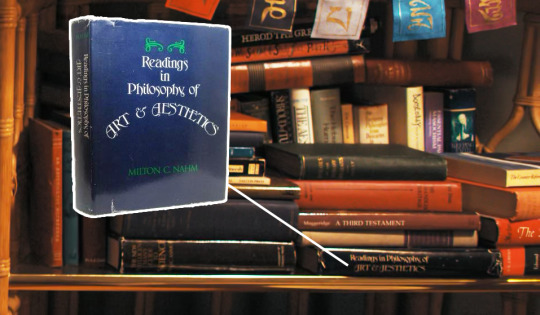
Readings in the Philosophy of Art and Aesthetics compiled by Milton Charles Nahm (1975)
A college level comprehensive anthology of essays written on the arts and the field of aesthetic philosophy.

The Mustard Seed: Discourses on the Sayings of Jesus Taken from the Gospel According to Thomas by Bhagwan Shree Rajneesh (1975)
This timely book explores the wisdom of the Gnostic Jesus, who challenges our preconceptions about the world and ourselves. Based on the Gospel of Thomas, the book recounts the missing years in Jesus’ life and his time in Egypt and India, learning from Egyptian secret societies, then Buddhist schools, then Hindu Vedanta. Each of Jesus' original sayings is the "seed" for a chapter of the book; each examines one aspect of life — birth, death, love, fear, anger, and more — counterpointed by Osho’s penetrating comments and responses to questions from his audience.
(You don't know how fulfilling it was to find some of these books and just sit there like "oh my god, yessss, he'd SO read that".)
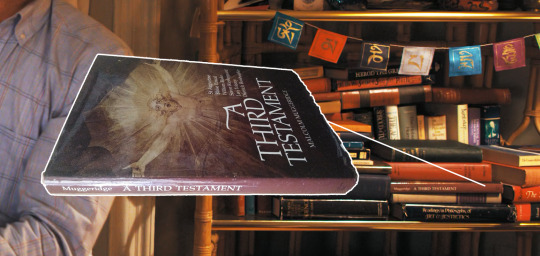
A Third Testament by Malcolm Muggeridge (1976)
A modern pilgrim explores the spiritual wanderings of Augustine, Pascal, Blake, Kierkegaard, Dostoevsky, Tolstoy, and Bonhoeffer. A Third Testament brings to life seven men whose names are familiar enough, but whose iconoclastic spiritual wanderings make for unforgettable reading. Muggeridge's concise biographies are an accessible and manageable introduction to these spiritual giants who carried on the testament to the reality of God begun in the Old and New Testaments.
- St. Augustine, a headstrong young hedonist and speechwriter who turned his back on money and prestige in order to serve Christ
- Blaise Pascal, a brilliant mathematician who pursued scientific knowledge but warned people against thinking they could live without God
- William Blake, a magnificent artist-poet who pled passionately for the life of the spirit and warned of the blight that materialism would usher in
- Soren Kierkegaard, a renegade philosopher who spent most of his life at odds with the church, and insisted that every person must find his own way to God
- Fyodor Dostoevsky, a debt-ridden writer and sometime prisoner who found, in the midst of squalor and political turmoil, the still small voice of God
- Leo Tolstoy, a grand old novelist who swung between idealism and depression, loneliness and fame and a duel awareness of his sinfulness and God s grace
- Dietrich Bonhoeffer, a pastor whose writings and agonized involvement in a plot to kill Hitler cost him his life, but continue to inspire millions
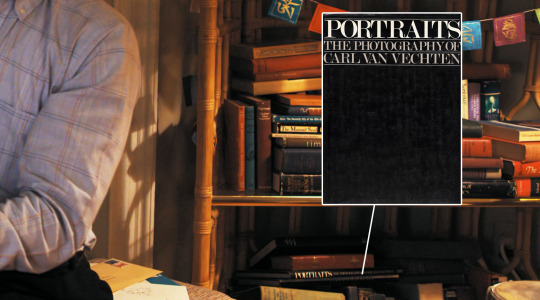
Portraits: The photography of Carl Van Vechten (1978)
Can't find a file but you can borrow it from archive.com in the link provided.
During his career as a photographer, Carl Van Vechten’s subjects, many of whom were his friends and social acquaintances, included dancers, actors, writers, artists, activists, singers, costumiers, photographers, social critics, educators, journalists, and aesthetes. [...] As a promoter of literary talent and a critic of dance, theater, and opera, Carl Van Vechten was as interested in the cultural margin as he was in the day’s most acclaimed and successful people. His diverse subjects give a sense of both Carl Van Vechten’s interests and his considerable role in defining the cultural landscape of the twentieth century; among his many sitters one finds the leading lights of the Harlem Renaissance, the premier actors and writers of the American stage, the world’s greatest opera stars and ballerinas, the most important and influential writers of the day, among many others.
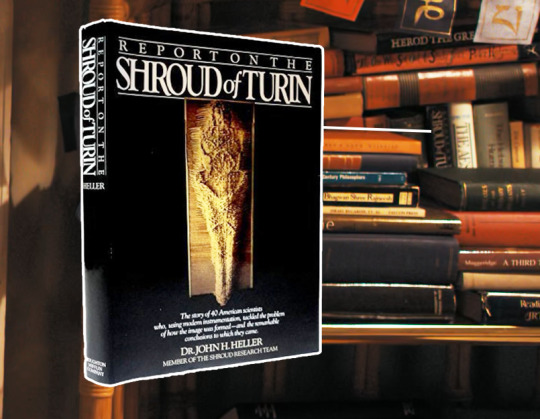
Report of the Shroud of Turin by John H Heller (1983)
Heller, while a man of science, was nevertheless a devout man (Southern Baptist). He viewed his task concerning The Shroud with great scepticism; there have been far too many hoaxes in the world of religion. The book describes in great detail the events leading up to the team's conviction that the Shroud was genuine; last - not least - being Heller and Adler's verification of "heme" (blood) and the inexplicable "burned image" of the crucified man. Although carbon dating indicates that the image is not 2000 years old and that the cloth is from the Middle Ages, there is not enough evidence to disprove Heller's assertion that the Shroud is indeed genuine.
Context for those who may not know (though I doubt it's necessary): The shroud of Turin "is a length of linen cloth that bears a faint image of the front and back of a man. It has been venerated for centuries, especially by members of the Catholic Church, as the actual burial shroud used to wrap the body of Jesus of Nazareth after his crucifixion, and upon which Jesus's bodily image is miraculously imprinted."
It is a very controversial subject matter and I definitely don't know that from going to an Opus Dei school since the day I was born till the day I graduated high school.

Mysticism, Psychology and Oedipus by Israel Regardie (1985)
I've tried my hardest but despite many Israel Regardie books being on the world wide web, I can't find a copy of this specific one.
Mysticism, Psychology and Oedipus, from the Small Gems series is one of these mysterious alchemys which Regardie and Spiegelman crafted for the serious student of mysticism. Mysticism, Psychology and Oedipus by Dr. Israel Regardie and his friend, world renowned Jungian Psychologist, J. Marvin Spiegelman, Ph.D. was created to reach the serious student at the intersecting paths of magic, mysticism and psychology. While each area of study overlaps they also maintain their own individual paths of truth. One of Regardie’s greatest gifts was his rare ability to combine these difficult and diverse subjects and make them understandable.
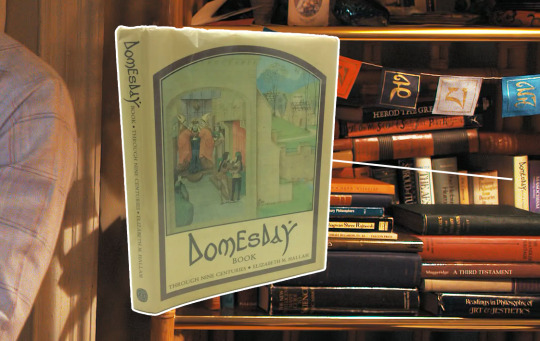
Domesday Book Through Nine Centuries by Elizabeth M. Hallam (1986)
In 1086 a great survey of landholding in England was carried out on the orders of William the Conqueror, and its results were recorded in the two volumes, which, within less than a century, were to acquire the name of Domesday, or the Book of Judgment 'because its decisions, like those of the last Judgment, are unalterable'. This detailed survey of the kingdom, unprecedented at that time in its scope, gives us an extraordinarily vivid impression of the life of the eleventh century.
The following two are a fuck up on the props department part because they were published after 1987 but we'll forgive them because they were not expecting for me to do all this to figure out the titles of these books, I'm sure:
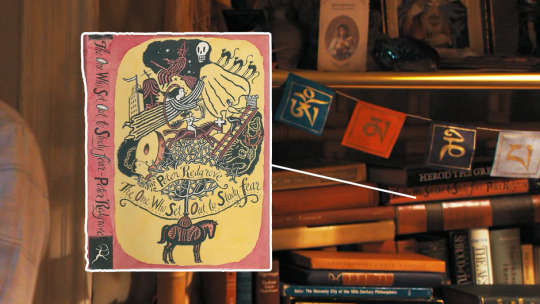
The One Who Set Out to Study Fear by Peter Redgrove (1989)
This book barely exists physically, rest assured it does not exist online... LOL.
The author of The Wise Wound presents here a re-telling of Grimm's famous fairy tales, written in a manner and spirit more suited to the present day. Each story is rooted in the original, but cast in an energetic style that is both disrespectful and humorous.
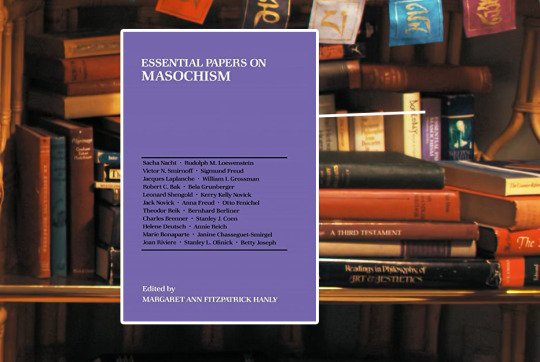
Essential Papers on Masochism by Margaret Ann Fitzpatrick Hanly (1995)
The contested psychoanalytic concept of masochism has served to open up pathways into less-explored regions of the human mind and behavior. Here, rituals of pain and sexual abusiveness prevail, and sometimes gruesome details of unconscious fantasies are constructed out of psychological pain, desperate need, and sexually excited, self- destructive violence.
In this significant addition to the "Essential Papers in Psychoanalysis" series, Margaret Ann Fitzpatrick Hanly presents an anthology of the most outstanding writings in the psychoanalytic study of masochism. In bringing these essays together, Dr. Fitzpatrick Hanly expertly combines classic and contemporary theories by the most respected scholars in the field to create a varied and integrated volume.
This collection features papers by S. Nacht, R. Loewenstein, Victor Smirnoff, Sigmund Freud, Jacques Laplanche, Robert Bak, Leonard Shengold, K. Novick, J. Novick, S. Coen, Margaret Brenman, Esther Menaker, S. Lorand, M. Balint, Bernhard Berliner, Charles Brenner, Helene Deutsch, Annie Reich, Marie Bonaparte, Jessica Benjamin, S.L. Olinick, Arnold Modell, Betty Joseph, and Janine Chasseguet-Smirgel.
Let's not forget another book we know has been present in his shelves at some point:

Look Homeward, Angel by Thomas Wolfe (1929)
It is Wolfe's first novel, and is considered a highly autobiographical American coming-of-age story. The character of Eugene Gant is generally believed to be a depiction of Wolfe himself. The novel briefly recounts Eugene's father's early life, but primarily covers the span of time from Eugene's birth in 1900 to his definitive departure from home at the age of 19. The setting is a fictionalization of his home town of Asheville, North Carolina, called Altamont in the novel.
And Ron Nyswaner mentioned in a podcast (might be this one? I'm not sure) that he scrapped from the script a line where Tim recommends this poem at some point:
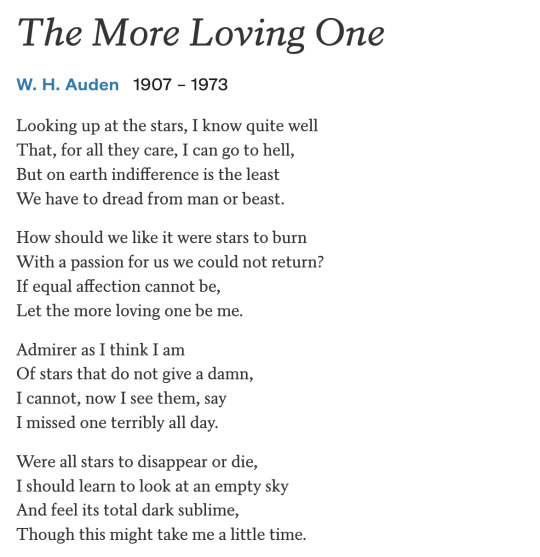
He specially emphasized the line "If equal affection cannot be, Let the more loving one be me".
And lastly, if anyone wanted to know:
His copy of the bible is the Revised Standard Version by Thomas Nelson from either 1952 or 1953.

Because why the hell not figure out what specific translation of the holy bible a fictional character was basing his beliefs on — as if the set designers cared nearly as much as I do.
#fellow travelers#fellow travelers meta#tim laughlin#fellowtravelersedit#i know it doesnt precisely fit the tag but hey.. theres a gif right there#this is such a jobless thread... but i AM jobless
66 notes
·
View notes
Text
"Armand is Alice and Daniel's wife/s and kids aren't real" has become a popular fan theory (even Luke Brandon Field said he liked it!) but i'd be surprised if it was right. I think it's definitely possible that Devil's Minion will be adapted in the show (though probably not exactly like in the books), but i personally think this whole imaginary family thing would be a poor way to handle the storyline for a variety of reasons. I think a twist like that would probably come across convoluted and (as Daniel might say) like something from a telenovela.
We see children's toys in Daniel's house and he's public figure who many people know with an autobiography and everything. Creating decades worth of false memories for Daniel and somehow also maintaining that imaginary life story for decades wouldn't be enough, Armand or whoever did it would also realistically have to have an absurd level of control over the physical world, public records and many other people's minds to sustain an illusion like that. I also frankly think it would be difficult to avoid having some sexist and biphobic undertones to the idea that Daniel's relationships with women were unreal and meaningless and only his relationship with a man matters.
However, the most important reason why i think Daniel's wifes and children should be real is that they make him a richer, more nuanced character and are actually central to understanding him and his motives. He has lived a full and complex life that has been influenced and to some extent defined by his encounters with vampires, but those vampires still weren't his whole life. I think it's more interesting to see Daniel's human life and his relationship with Armand and Louis as something connected and overlapping that both affect each other. We actually learn quite a lot about Daniel from what he says about his partners and children.
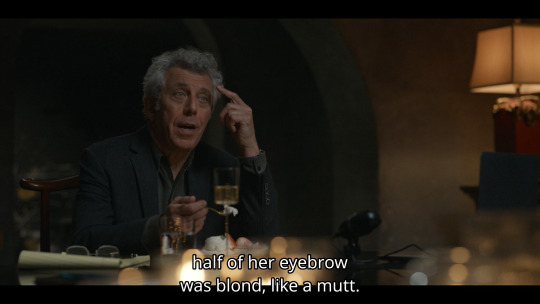
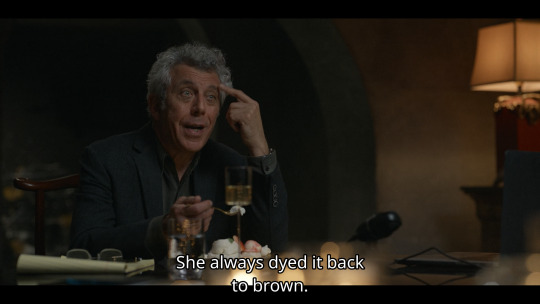
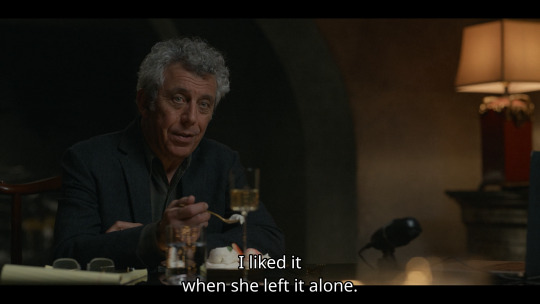
This scene - as well as how Alice in general is discussed - reminded many people of how Daniel in the books talks about Armand, such as this famous passage:

Parallels between Daniel's relationships with Alice and Armand in the books are obvious but i think they're just that, parallels. Both the sweet little scene where Daniel is talking about Alice's eyebrows and the book scene where he's talking about loving Armand not despite but because he's a monster reflect in different ways who Daniel is as a person; he feels drawn to unconventional and strange and sees beauty where others might not. He ended up in this situation with vampires too because he wanted to interview people who're rejected by the society.
If Daniel already had some sort of relationship with Armand in the past it makes sense that it would be associated with Alice in his mind. There may be an overlap between the timelines of those relationships. A memory of Armand rises when Daniel is reminded of Alice rejecting his marriage proposal, in the books Armand rejected his wish to be turn him into a vampire, which would've been something akin to marriage. I think Alice being real is much more compelling for Armand's character too, with Armand expressing surprising understanding and sympathy toward Daniel's wife rather than just speaking about his own experience through an imaginary woman.
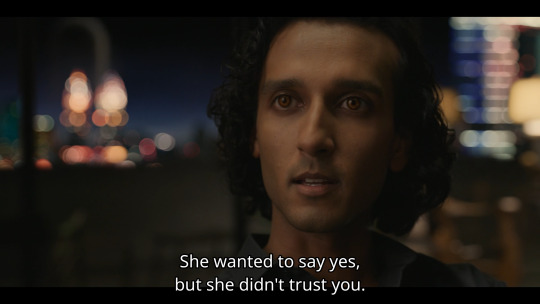
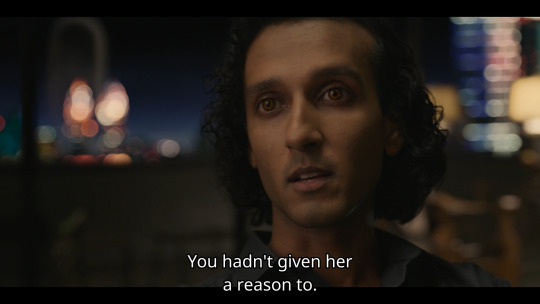
Completely putting aside Devil's Minion and is it a thing in the show or not, i think Daniel's family is particularly important to Louis' and Daniel's relationship. Something that hasn't technically been explicitly said but to me seems obvious is that Louis and Daniel strongly relate to each other as fathers. Many scenes where we see Louis and Daniel show vulnerability in front of each other have something to do with their partners and children. In 1.02 as one of the earliest examples of this Louis replicates the dessert Daniel had with Alice, trying to connect with him and his humanity through it, Daniel shares personal memory and they eat together in companionable silence.
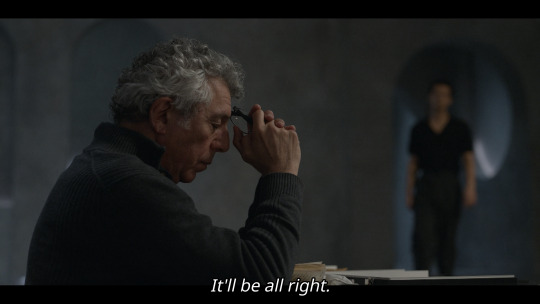

I would argue that Claudia, her memory, and Louis' relationship with her is the heart of the story in these first two seasons. Claudia entering the story in 1.04 marks the shift in the interview and Daniel's approach; he becomes both more combative and more emotionally invested. He has a strong reaction to reading Claudia's diaries, and it's not difficult for any parent to guess that he's also imagining her own daughters in similar circumstances to Claudia.
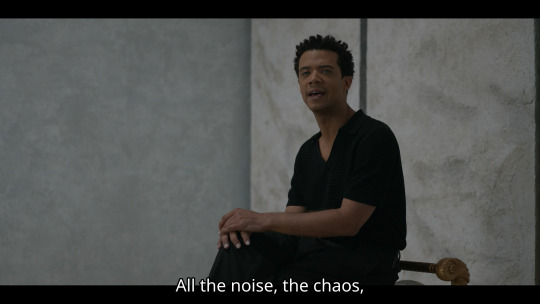
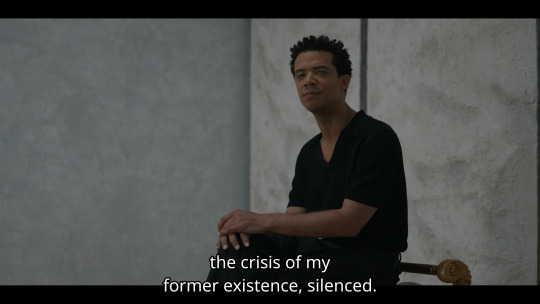
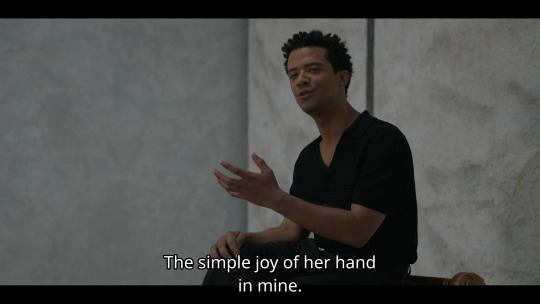
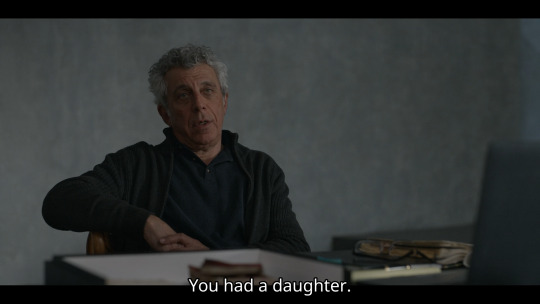
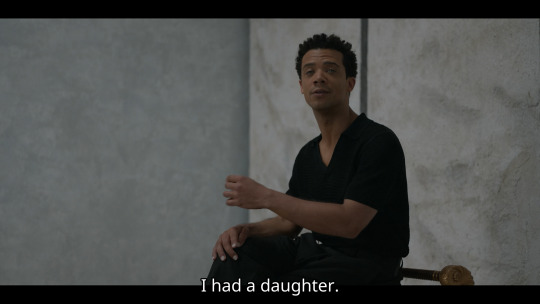
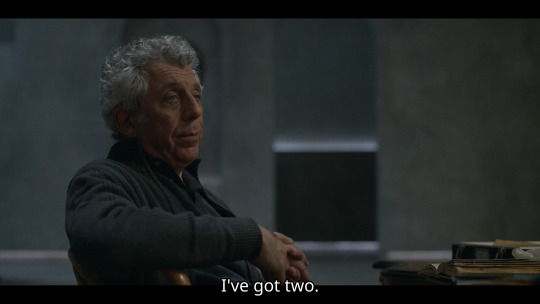
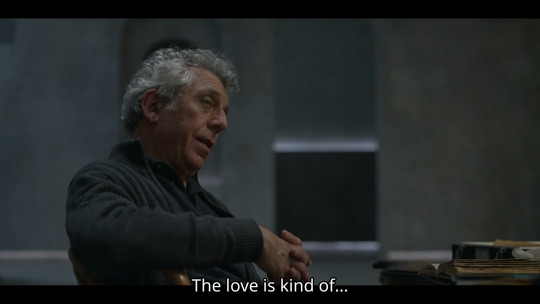
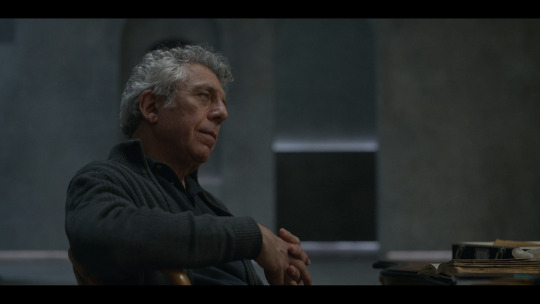
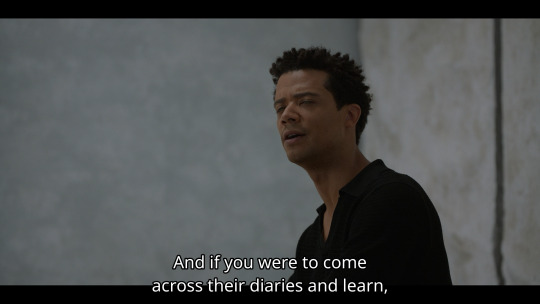
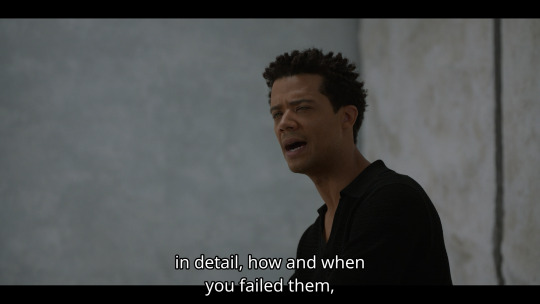
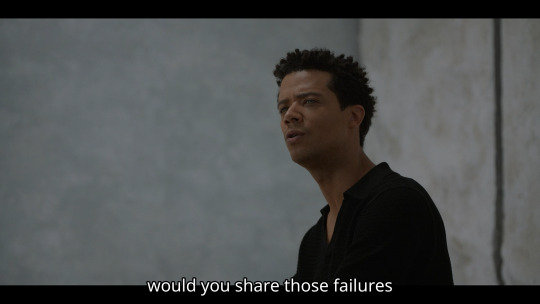
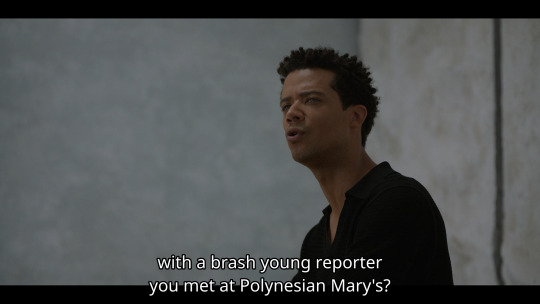
I think this conversation at the end of the episode (alongside Louis' speech to Daniel in San Francisco and them remembering it in 2.05) is the most important scene between Louis and Daniel. They share the understanding what it feels like to have children and love them so much you don't even have words for it, but still fail them. It's not a coincidence that in the original interview in San Francisco what leads to Louis attacking Daniel is Louis telling the story of Claudia leaving alone and Louis going back to Lestat, and Daniel acting dismissively and clearly not understanding why this is so painful memory to Louis. Daniel was young, stupid and high - and he didn't have children yet. Daniel now wouldn't act like that when hearing this story, and he doesn't in 1.06 when hearing it again. And notably when Louis says that he would now agree to turn Daniel, Daniel says he doesn't want it anymore and specifically mentions his daughters as one of the reasons. Having to watch your children die before you is the most horrifying thing in the world. It's something Louis had to go through and Daniel wishes he never has to, even if vampirism still intrigues him.
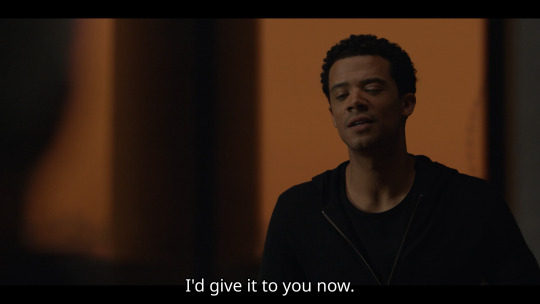
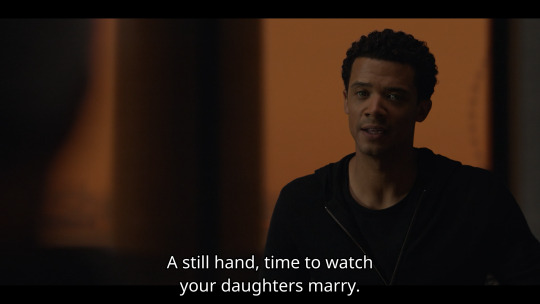
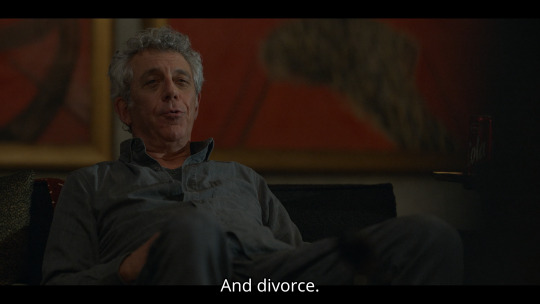
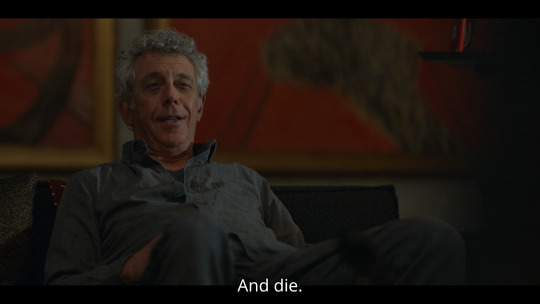
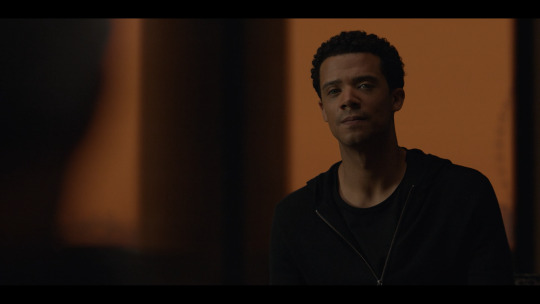
Daniel realizes quickly that it all comes down to Louis' feelings of guilt and shame about failing Claudia and his inability to protect her, because he has similar feelings about his own daughters. Louis' story unravels in s1 finale because Daniel recognizes that Louis' more palatable narrative around what happened with Claudia isn't fully true. Daniel carefully read through Claudia's diaries and tried to learn to understand her, and he positions himself as someone who's trying to defend her integrity and reveal the injustice that was done to her. This is again about Daniel's own children as much as it's about Claudia. He knows that he's a bad father, his daughters don't talk to him anymore and it's implied that he neglected them when focusing on other things that interested him more. When Daniel defends Claudia he's on some level trying to rectify his own mistakes and when he calls Louis out he's also voicing his own self-loathing.
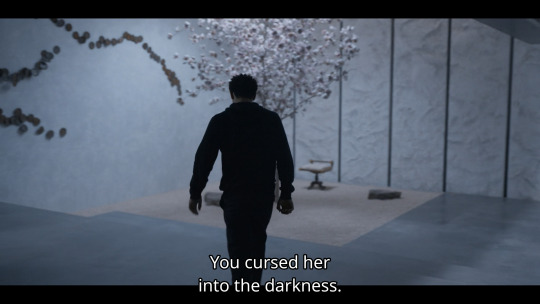
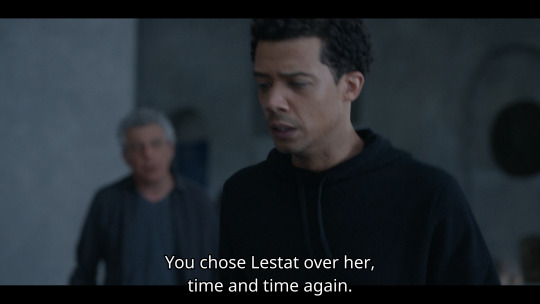
Eric Bogosian remarked that the scene in 2.01 where Louis cries and thanks for Daniel for helping him to remember that Claudia could dream is another shift in their dynamic. Daniel looks at Louis with genuine concern, and after that he tones down his usual sarcasm and jabs significantly. Daniel, again, can sympathize with how important this is for Louis. There's a new sincerity and empathy in their interactions. Sometimes the audience forgets that this story is ultimately about Claudia, but Daniel hasn't forgotten it since he first realized it. They're trying to understand together what happened to Louis' child and everything that led to it. I think if Daniel wasn't a father he would've acted differently, and Louis wouldn't have trusted him in the same way either and been able to share his and Claudia's story. I think this shared sorrow, love and guilt they feel as fathers is one of the most crucial parts of their connection.
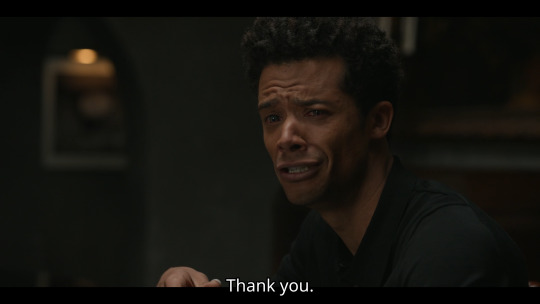
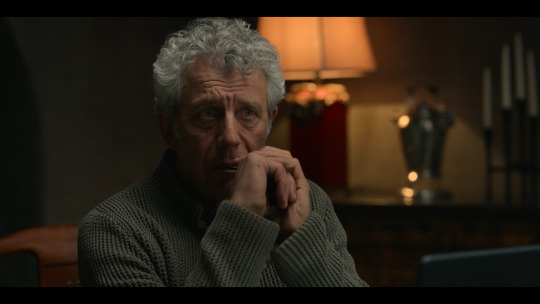
#iwtv#iwtvposting#danlou#this is mostly about daniel and louis but a bit of armand too#daniel molloy#interview with the vampire
46 notes
·
View notes
Text
this might be very incoherent cause my brain is slightly burnt but i find it really interesting (fascinating, even) that armand is apparently drawn to people who have an interest in seeing/understanding others.
i mean, we have louis, who has photography as a hobby when armand meets him, a preference for portraits and hiding behind the people he photographs in his own way ("hides the cracks in the walls", as he said).
he likes taking photographs because it takes his mind off things, and taking portraits because it hides the cracks in the walls, and says he's finding himself through those pictures.
then we have daniel, who holds onto his interviews as a reason to live when armand tries to convince him to give up, and who memorised the stories of the people he talked to so well he can remember them even when under pressure.
he says he didn't live a fascinating life (and from what armand digs from his mind, he isn't lying), but louis still calls him fascinating. he says he is good at "getting people to open up", and armand calls him an eager black hole after almost spilling his own story.
and what i'm trying to get at here is that armand looked at these two, who see themselves through other people, and immediately decided that they were going to be his. which becomes pretty sad when you remember that he said he didn't know who he was himself.
he shows interest in their ways to explore themselves, but gives up quickly when he figures neither photographing others or listening to their lives would bring him a sense of self the way being told who he was by others did.
#i kinda want to put armand's brain under a microscope if that wasn't obvious#he's just so fascinating#iwtv#interview with the vampire#armand iwtv#louis de pointe du lac#daniel molloy#loumand#armandiel
26 notes
·
View notes
Text

PEOPLE!!!!
I JUST REALIZED WE HAVE HIT 10 FOLLOWERS!!!!
THX YALL!!
I figure its time to introduce myself properly:)
Hi!
Im Theo, they/them pronoun enjoyer but you can call me just about anything I dont mind. (Also I am aroace)
I love love biology and chemistry, and I actually research currently (cancer-treatment research, based on Paul Ehrlich’s magick bullet theory, if anyone was interested; also I get synthetise peptides and stuff so thats pretty cool, if anyone has any questions or just interested please let me know, I would love to chat about it:3) , despite being in high school. Other things that I like are musicals (Beetlejuice, Hamilton, Heathers and so on), theatre and writing in general (I act a lot, and have recently done a play on the lord of the flies) and also Good Omens. I heckin love good omens maan. And undertale was my childhood.
I got invested in dungeon meshi because of the anime but after a few episodes I got so excited I decided to read the manga. My favourite characters are Laios and Mithrun but honestly I love everyone in the story from the bottom of my heart.
(Also funfact this was supposed to be a sideblog for my main (citygeckoposts) and was originally intended to be scott pilgrim themed but then quickly got repurposed)
Anyways, thank you all again for being here and listening to me yap about silly characters! Also if anyone has any idea about what kind of posts they would want me to make, please let me know!! (I have a few headcanon ones cooking on the grill right now but who knows where we might escalate)
The real ones:
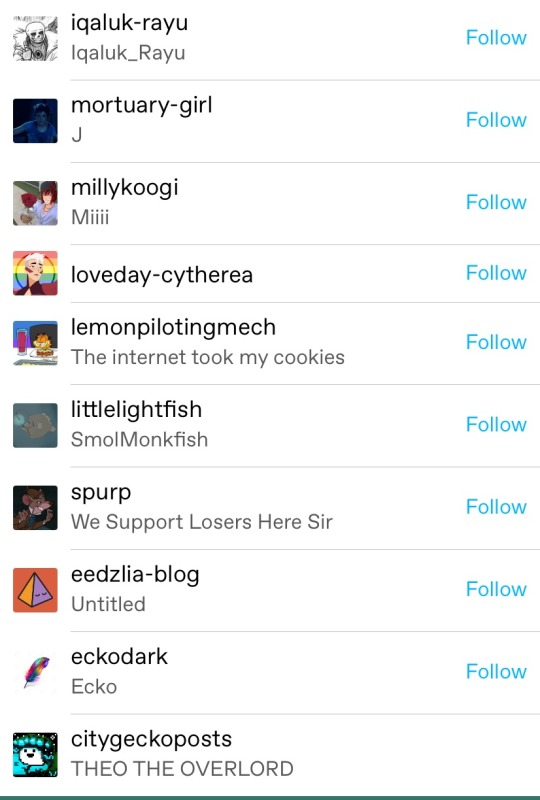
#dungeon meshi#delicious in dungeon#dunmeshi#manga#icons#anime icons#dunmesi icon#thank you#thanks yall#follower milestone#i love you all
21 notes
·
View notes
Note
I remember when my older sister used to drive and I would ask to play some music, but she would never let me because she thought my taste in music was "wack." One time, when my sister invited her friend while driving, her friend had the same music taste as mine. As we enjoyed the ride with her songs, I felt like I got a form of revenge on my sister. After we finished driving, I told her friend that we had the same taste in music, and my sister always refused to let me play music because she thought my taste was "wack." The friend was highly offended and it led to an argument between my sister and her, and I walked away pretending like nothing happened.
What I'm trying to say is that it would have been funny if the MC had manipulated the situation and made the brothers get into a fight or argue with each other.
It would actually give them a complex personality, cause I always see them as goody-two-shoes and perfect silent human being.
Well, I have to say that I don't think MC would have to try quite that hard if they really wanted to get the brothers to fight with each other. They kinda seem like they do that a lot anyway?
Of course if you have a more manipulative MC, I'm sure they could easily increase the amount of fights between the brothers!
Generic MC is indeed written as being very nice and perfect. They do have occasional dialogue options that are completely out of left field and sometimes they do some things that are completely chaotic. But I think that's more for the humor than because that's how their character is actually written. Far more often, MC is the one that's working out everybody else's problems.
Perhaps this is why I like to hear about other people's MCs. It's interesting to see how other MCs would react to things because they always have a much more interesting personality and complex character.
It's kind of inevitable that they have to keep generic MC... well, generic lol.
But if you had a manipulative MC that does this kind of thing just to create arguments, it'd be easy to do amongst the brothers. I mean, all you'd have to do is like... choose someone for something and they'd already start fighting over you. I think it'd be more difficult to do this with the side characters. They don't already have that sibling rivalry going on, you know? Like could you even manipulate Barbatos at all? Let alone in such a way that caused him to get into a fight with Diavolo? Solomon would be easy enough, just tell Barb that he's in the kitchen or something lol.
Anyway, I wonder if they'd ever figure out what MC was doing? I think Lucifer might. And Belphie probably would, too. He's smart, but he's also manipulative, so he'd recognize the tactics.
Imagine if manipulative MC and Belphie teamed up. Neither of them would ever need to do another chore 'cause they'd just get everyone else to do them all the time. Either that or they'd cause so many arguments that the HoL gets destroyed.
#just be prepared for possibly flooding#and who knows what kinda destruction Satan could cause lol#obey me#obey me nightbringer#obey me mc#anon asks#misc answers
20 notes
·
View notes
Text
pasting a ramble i did on discord of analysis/conjecture/headcanons about liko's home life/upbringing, with strong likodot flavor in the latter half as usual, nearly verbatim because i think i worded it pretty much perfectly the first time while relaying my thoughts to friends... just edited for easier reading slightly
liko doesn’t canonically show attachment issues or abandonment worries really, but i headcanon her with some of that because like. parents busy all the time. not a lot of people in her life and the ones that are, aka mainly her caretakers (she's implied to not really have friends at the start of the show) don’t communicate with her great or are sometimes unavailable for stretches of time.
it makes a lot of sense to me that canonically the brave asagi feels like home so quickly to her. because it’s stable. the same people are always there, she literally lives with them on an airship. but like. they're stable adult figures that aren’t disappearing for periods of time, and friede’s forgetfulness aside (lighthearted), people who communicate with her better. this does wonders for her bdjdjdsk
i also think her selflessness to point of fault could tie in with this, like blaming herself for situations and shrugging off her own feelings (she often doesn’t even notice when she herself is upset/moody on multiple occasions!!) could have been a habit developed from this very thing. she loves her parents and doesn’t want to have to view them as absent or being poor at communication so everything is her fault. she doesn’t want to be pointing blame or to cause problems when people are home or things are good so she dissociates away her own feelings and is very polite and considerate of anything that comes up.
i say all this because i think it’d be an interesting way to spin liko’s character who is already interesting. but also i got to thinking about this manifesting in her relationship with dot down the line. cause like adult figures are one thing but also friends and hell having a girlfriend is kind of different. and dot does actually get busy sometimes because she is still working as gurumin on top of schoolwork (this is headcanons for vaguely what a couple years from now as of HZ053 at the time of writing might look like or something. dot going to more normal schooling similar to how liko has been, on top of still being gurumin)
this starts sparking anxiety in liko but first she shoves it down and acts like it’s fine. and then it starts slipping through the cracks. cue comedy of her being like WHY AM I THINKING CRAZY THINGS LIKE “I WANT TO INTERRUPT GURUMIN VIDEO EDITING TO HANG OUT WHO HAVE I BECOME WHAT SORT OF GURUMIN FAN AM I AHHHH also i don't want to be clingy to dot she likes her independent space...”
still, her response is to be like no it's fine, i have to be fine with this, i'm just acting crazy, dot has literally never done anything to warrant me feeling like this, i am being a bad girlfriend. and dot notices this in her demeanor and is like hey what's wrong? and liko’s like What!
anyway they talk it out and come to some sort of middle ground where of course dot still needs to be alone sometimes either to focus or to just have alone time in general. she’s not gonna let liko derail into a worsening spiral of clinginess. but! she is going to reassure her that it’s fine!
and also cue liko sometimes being able to hang out quietly in her room doing her own thing like lying in dot’s bed on her phone while dot video edits... also way more self indulgent, extremely “this is so not canon but i am a shipper let me live” imagery: dot managing her gurumin socials on her phone in her bed with one hand and liko lying on her bed partially on her lap like a lapcat while dot pets her hair with the other hand. in this essay i will
thanks for coming to my ted talk i've been rotating this in my brain for weeks
#likodot#dotliko#guruminshipping#horizons#kiki was here#kiki.txt#i have many more thoughts on the brain but i wanted to get this specific one out first#also im tagging it bc I FEEL VERY STRONGLY..
16 notes
·
View notes
Text
Watch Ahsoka in Theaters at the Midseason Fan Celebration Event | StarWars.com
Ooh, I just saw this and haven't really scrolled much through the main Ahsoka tag yet, anyone else know about it?
Here's the midseason poster that goes with it. I like it!

#Star Wars#Ahsoka#Ahsoka series#Ahsoka spoilers#Ahsoka Tano#Anakin Skywalker#Sabine Wren#Hera Syndulla#Shin Hati#Baylan Skoll#Inquisitor Marrok#Morgan Elsbeth#Huyang#Chopper#Is that everyone on the poster? I'm trying to cover my bases#I don't do movie theaters for a variety of autism/sensory processing issues#Plus covid stuff now#But I figure other people might be interested#Like I have less than ten followers (but I used to have none so it's cool!) but posting in the main tag at least SOMEONE might see it.#So. here ya go! 😁
22 notes
·
View notes
Text
A while back, I got pretty frustrated trying to figure out what people meant when they used the phrase "strong style." I’d seen people throwing it around frequently in English language wrestling discussion, but I’d never been able to get a real, clear definition for it from anyone, especially not one with actual citations or sources.
I decided to try reading about it on my own. And I immediately learned that people use the phrase "strong style" very differently in English than it’s used in Japanese.
Strong Style has it’s own Japanese-language wikipedia page. Here are the first couple paragraphs, translated by me:
"Strong Style" is a concept / -ism of professional wrestling. It’s a style in which one expresses one’s "emotions (rage)" in one’s wrestling. [The source for this sentence is given as a now-private Youtube interview with Shinsuke Nakamura.] It was conceptualized by Antonio Inoki, and passed down primarily within New Japan Pro Wrestling.
In Antonio Inoki’s "Autobiography of Antonio Inoki" he said that "Strong Style" is the fusion of the Karl Gotch style of offensive and defensive wrestling techniques and the Riki Douzan style that displayed the fearsomeness of pro-wrestling."
The article goes on to say that in addition to the raw emotion and the stylistic amalgam of Riki Douzan and Karl Gotch, Strong Style is also associated with a specific style of wrestling gear - short black trunks, black wrestling boots, and bare elbows and knees.
When I’d heard people use the term "Strong Style" in English, it had felt like it had a completely different, completely unrelated meaning: "something hard-hitting, MMA adjacent, pro-wrestling that’s similar to a real fight." "Strong" taken literally and simply, as physical strength behind physical blows. But the term as conceptualized by Antonio Inoki had a completely different meaning. The "strong" here was at least as much emotional as it was physical, and the inspiration wasn't so much MMA as it was wrestling.
It’s not unusual for this kind of disconnect to occur between Japanese pro wrestling and the English-language fans, but I was still surprised to learn that the meaning of a term this widely used, and this foundational to Japanese wrestling, had been so profoundly lost in translation.
The Japanese-language wikipedia page also addresses this alternate English-language definition of the term. Towards the end, they include a quote from Shinsuke Nakamura, where he says that unlike in Japan, in America people think of Strong Style as "shoot style" with elements of boxing and amateur wrestling. It also includes a section towards the bottom of the page for "Shoot Style" pro wrestling, which it defines as completely separate from Strong Style, with a European origin and unrelated history.
In any case, reading this gave me a real sense of clarity when trying to understand how the phrase is used within New Japan Pro Wrestling.
#njpw#strong style#antonio inoki#new japan pro wrestling#my translation#I found this really interesting when I was reading it so I figured other people might find it interesting too?#I don't think it's so simple as this in reality - different people have different interpretations of what this phrase means#But having some kind of basic definition of it spelled out clearly by the guy who came up with it was really useful to me
105 notes
·
View notes
Note
(Idk if someone asked this already) since we’re on the topic of gender
sci what is gender to you and how do you see it in you and how you express it in your art?? (Just a young queer artist who wants some light shined upon them 🥺)
i 'unno ¯\_(ツ)_/¯
#gender is soup#sci speaks#i'm so sorry i know you might hope for something profound but... i think when i'm put on the spot like this i can't say anything really#i think whatever i am is definitely pervasive in everything i write#but like.. gender means something different to wade than it does for peter.#just like it'll be different for everybody. we make different associations based on our experiences and our trauma.#like.. wade associates femininity with love. because of his mother. associates masculinity with violence. because of his father.#peter associates masculinity with responsibility. because of uncle ben. associates femininity with confidence. because of aunt may.#i think there's all kinds of reasons why we choose to present the way we do. and what gender means to us.#just like we'll associate a colour with something. or a smell with a memory. it's complicated.#i don't think i'm some kind of expert on gender things but... i just find it interesting to explore. the psychology of it.#i don't think it's supernatural. it doesn't come from nowhere. but it should be a playground.#i don't think anyone in this world should be restricted to a certain role to play. i want to try all the roles and see how it fits.#see how well i can play them.#maybe because i haven't found one that quite fits. so i want the opportunity to try whatever i can. see what feels right.#i think it would be fun to be a wife. i think it would be fun to be a husband. i think it would be fun to be a firefighter. i think it wo#shrugs. different outfits for every day. different roles to play.#today i'd like to try...#i think it's like kids learning how to be adults by playing pretend. by playing roles.#i'm learning more about myself and other people and fitting into the world by trying on different roles.#kids playing house. you be the mom. i'll be the dad. yadda yadda.#i still feel like a bit of a kid who hasn't figured out how to be an adult yet. so i'm still trying out roles to see what fits.
36 notes
·
View notes
Text
I usually go with April just because he's a Spring baby and it's the most Spring sounding month to me. It's in the middle of Spring
#i don't understand star chart stuff but i figure other people might base their headcanons on that#and that could be interesting#captive prince#laurent of vere#my post
29 notes
·
View notes
Text
You're Losing Me + what I see in my head when I listen to it
(aka a fanvid I guess)
#taylor swift#you're losing me#midnights#ts midnights#tswiftedit#i mostly made this for myself bc i could vividly picture it in my head and wanted it to actually exist#but i figure other people might like it too so tahdah#(i actually made a video for the entire song but this is the part i hyperfixated on lol so this is the post)#(idk maybe if there's interest i'll post the whole thing)#i want your midnights#mine
78 notes
·
View notes
Text
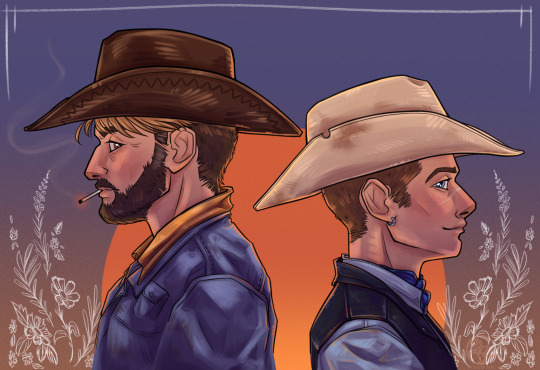
- Marten & Nohren -
#digital art#illustration#art#cowboys#original characters#my art#thought I might as well slap some colour on this now since i'll be away this week#i've got so many ideas floating around my head for story stuff I want to draw for these two#i've been writing them for almost a year now and i have a bunch of different AUs i'm excited to make designs for#the outlaws AU is one of my favourites though#excited to see how their designs change as i get more confident with drawing people#i'm not gonna info dump about them too much i think. I'll probably just let the story unfold trough the illustrations etc#cause idk if anyone's interested in the story stuff. i'm happy to answer if anyone asks stuff though#but the short version is that they grew up in the same town but didn't really get to know each other until later#Marten has a bad accident that leaves him bedridden for over a year while his father hides his condition out of shame#so Nohren takes a job as a hand at their ranch and figures out which room they're keeping Marten locked in#they become good friends and Nohren visits him in secret for almost two years while helping Marten regain some mobility#they take up the outlaw life after Nohren is seen with another man in town and decides he's better off getting out of dodge#Marten is torn about leaving the ranch behind but he comes along eventually#that's the very basic gist of it#they good kiddos#Marten#Nohren#Outlaws AU
33 notes
·
View notes
Text
hey. fierce deity but it’s a jekyll and hyde situation. fierce’s personality takes on whatever traits that Time tries to bury and ignore. however violent or benevolent he acts depends entirely on what Time is suppressing.
#either like. time is secretly very unsatisfied and bitter and is barely not lashing out#so fierce is constantly bitter and lashing out#or time is suppressing his emotions bc he’s afraid of attachment#so fierce is incredibly paternal and comforting#u can go either way (or both at the same time which would be very very interesting. time’s not showing his anger at how his family has been-#- treated and is horrified of the prospect of having found family in people he Knows he will have to leave at some point)#imagine warriors figuring this out and having to come to terms w the fact that the ferocious and oddly caring war deity was taking on the-#- personality of the sweet but shy and closed off 10 yr old he had come to care for#what a wild ride that would be#pspspspsps angst writers. cmere.#i might write this but i’d love to see what others can do w this idea#time lu#lu time#linked universe#linkeduniverse#fierce deity lu#lu fierce deity#lu#ft my interpretation of jekyll and hyde#i think this is the common understanding of it. i don’t know i just listened to my dad rant abt it two years ago and think ik what im on abt
65 notes
·
View notes